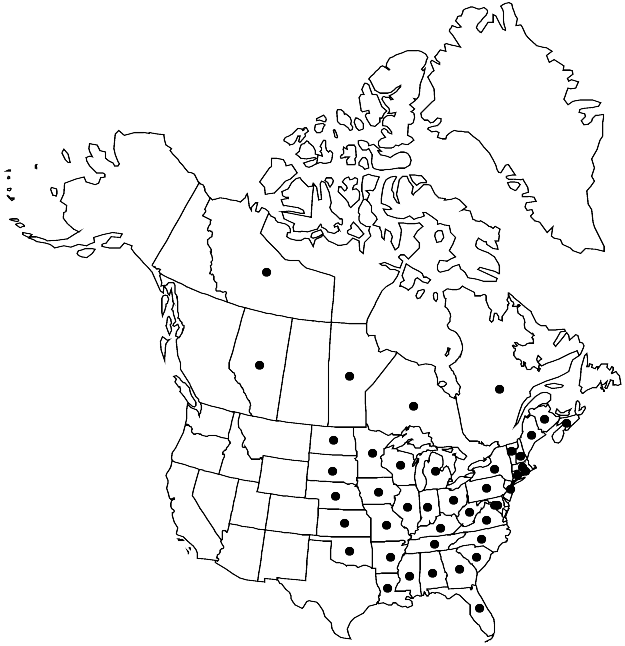Difference between revisions of "Entodon cladorrhizans"
Linnaea 18: 707. 1845.
FNA>Volume Importer |
imported>Volume Importer |
||
| Line 54: | Line 54: | ||
|publication year=1845 | |publication year=1845 | ||
|special status=Endemic | |special status=Endemic | ||
| − | |source xml=https:// | + | |source xml=https://bibilujan@bitbucket.org/aafc-mbb/fna-data-curation.git/src/bb6b7e3a7de7d3b7888a1ad48c7fd8f5c722d8d6/coarse_grained_fna_xml/V28/V28_786.xml |
|genus=Entodon | |genus=Entodon | ||
|species=Entodon cladorrhizans | |species=Entodon cladorrhizans | ||
Revision as of 22:48, 27 May 2020
Plants in dense mats, bright to yellow-green, sometimes tinged golden brown. Stems to 6 cm, subpinnate, branches complanate-foliate. Leaves erect to erect-spreading, broadly oblong-ovate, 2 mm (branch leaves 1.5–1.8 mm); margins plane, entire proximally, serrulate and often notched distally; apex gradually acute; costa double, short; alar region ± abruptly differentiated, 1-stratose, not reaching costa. Sexual condition autoicous. Seta reddish, 0.7–2 cm. Capsule cylindric, 2–3 mm; annulus 1–3-seriate, deciduous; operculum long-conic to bluntly obliquely rostrate; exostome teeth reddish, external surface coarsely papillose proximally, finely papillose apically, often perforate; endostome segments smooth to slightly roughened. Spores 13–20 µm.
Habitat: Rotten wood, bark at base of trees, soil, humus, rock in dry, deciduous forests
Elevation: low to moderate elevations
Distribution

Alta., Man., N.B., N.W.T., N.S., Ont., Que., Ala., Ark., Conn., D.C., Fla., Ga., Ill., Ind., Iowa, Kans., Ky., La., Maine, Md., Mass., Mich., Minn., Miss., Mo., Nebr., N.H., N.J., N.Y., N.C., N.Dak., Ohio, Okla., Pa., R.I., S.C., S.Dak., Tenn., Vt., Va., W.Va., Wis.
Discussion
Entodon cladorrhizans is best recognized by its mostly complanate-foliate branches, reddish setae, well-developed annulus, and papillose exostome teeth. The species has been confused with E. schleicheri in the western part of its range, but can be distinguished by its broader, more gradually tapering leaves with an apical cell about 2:1 (as well as sporophytic differences).
Selected References
None.